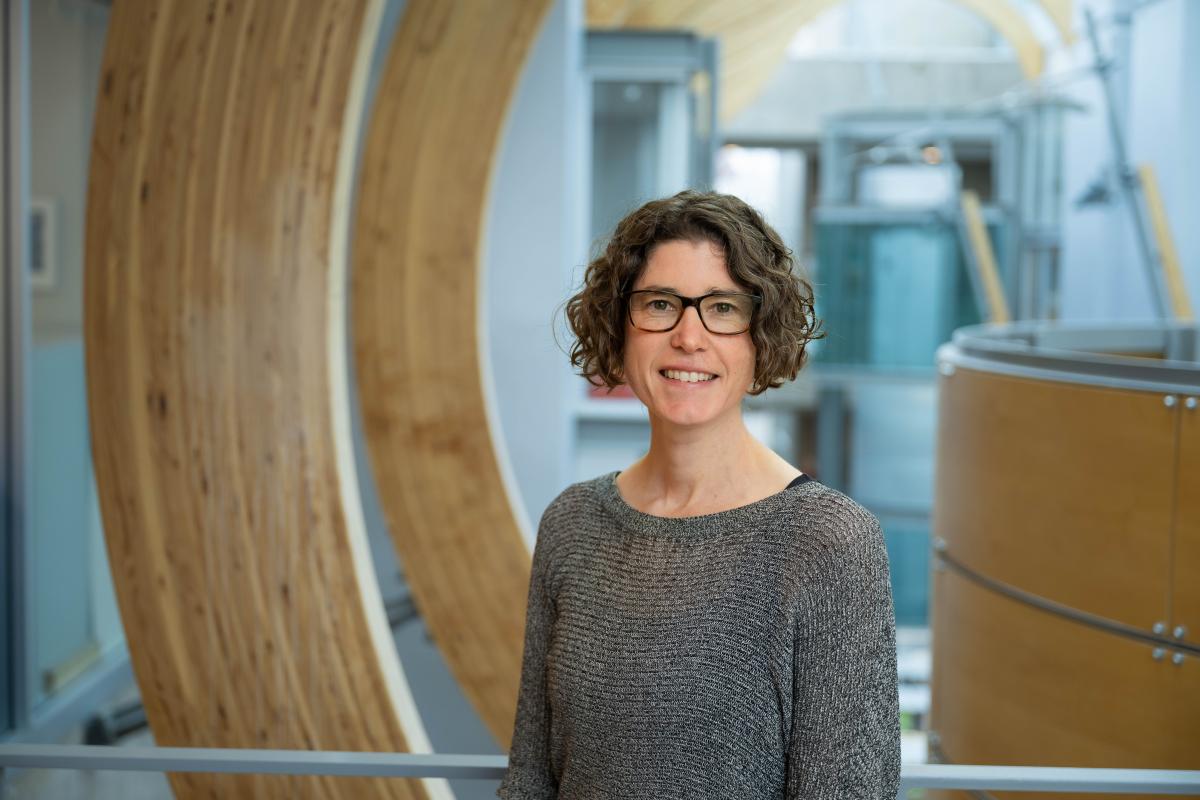Featured Coordinator: Karen Reid, Operations Manager, Michael Smith Laboratories, UBC

For Karen Reid, every action is vital for the ripple effect needed to shift to more sustainable choices. Operations Manager at the Michael Smith Laboratories (MSL), Karen brings a strong environmental passion rooted in her diverse research background, ranging from working with soil bacteria and ocean viruses, to plant and tree genomics.
Following her time on a wet-lab bench, Karen transitioned to managing large research projects before moving into administration at the MSL, a research department here at UBC. She reflects, “the term ‘operations’ describes bring involved in a little bit of everything, while having the privilege to influence.”
Since 2008, Karen has engaged with UBC’s Green Labs program and broader sustainability efforts. Her firsthand experience in research environments has made her acutely aware of the reliance on single-use supplies, and the resulting waste being produced. Rather than accept this as the norm, she asks, “can we redirect this waste stream?” and “are there any alternative materials that are less wasteful?”
Her journey began in earnest with the Green Labs lunch n’ learns offered by UBC’s Safety and Risk Services (SRS) department (namely Ligia and Noga). These events featured guest speakers who shared specialized knowledge about water, energy, and various waste streams in metro Vancouver, and offered a valuable opportunity to connect with like-minded individuals. This was Karen’s first connection with UBC’s sustainability community, many of whom she remains in contact with today.
As a result of Karen and her team’s efforts to implement sustainable systems and alternatives, the MSL now redirects 13 different waste streams. These include Styrofoam, amber glass, lab plastics, batteries, ice packs, pens/pencils, and more. Other units on campus have visited the MSL to learn from, replicate, and even do better in their own departments. Every small effort, from intentionally choosing vendors with a lower carbon footprint to implementing water and energy saving practices, contributes to reducing the environmental impact of research activities. This mindset has led to a wide array of sustainability initiatives at the MSL.
Karen highlighted two key reasons the department has been a leader in sustainable lab practices. First, all new members attend a mandatory building orientation, which covers not only essential safety guidelines, but also showcases the available segregated waste streams. “Making the orientation mandatory helps establish sustainability as part of the department culture”, Karen says. As a result, some former members have gone on to launch similar programs in their new workplaces – evidence of the ripple effect in action.
Second, the size of MSL makes it ideal for piloting UBC’s various sustainability projects. The community’s openness to allowing new ideas to be tested regularly means that there is always something new being tried and tested in her buildings. Home to a diverse set of research labs, the MSL has been a living lab to test LED bulbs, raising the temperature on cold storage, or optimizing HVAC airflow systems.
Of course, not every idea is easy to implement. Some, like a nitrile glove recycling program, remain aspirational due to cost and logistical barriers. Karen still hopes to see this implemented down the road.
She has learned that progress can take time and often comes from listening, communicating the benefits clearly, and making new practices optional. “We need to make the shift for a sustainable future, and every effort counts”, she says. “When it comes to research impact within my department, this is where I can have an influence.”
Through her work, and the collective effort of those around her, Karen has seen first-hand how a culture of positivity and sustainability can spread beyond the walls of the lab, creating ripples with real impact.